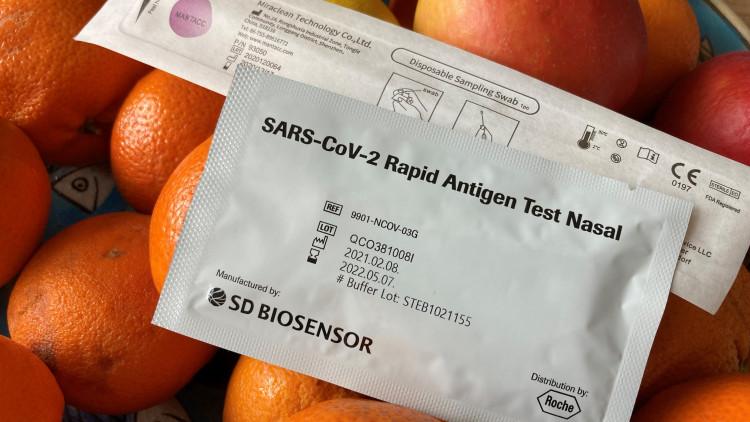Minister of Education acknowledges: self-testing does not make classes safer

A variety of pilot projects involving coronavirus tests and self-testing kits have been carried out in the Netherlands these past few months, both for universities and secondary vocational education. The Dutch government was hoping that, by having students and teachers taking regular tests, the institutions involved would be able to offer more classes face to face.
That turned out not to be the case. In a letter (in Dutch) to the House of Representatives, the minister writes that the coronavirus tests used in the pilot projects “have done little or nothing to enable institutions to organise more face-to-face teaching”.
Voluntary
One of the flaws of the project is that testing was completely voluntary and there were no consequences for those choosing not to get tested. So, many people simply didn't do it. Only 25 to 30 percent of students took part in the pilot.
Additionally, there's the fact that self-testing kits have a higher margin of error than those carried out by professionals. Good instruction helps, of course, but it can only go so far.
As a result, students and teachers must continue to keep a distance of 1.5 metres from each other, even with self-testing kits available for free. That means that Dutch universities cannot make use of their classrooms at full capacity, so they cannot schedule any extra classes.
This situation emerged in the beginning of April, when the first pilot project was completed, but the ministry was not yet prepared to accept the defeat at the time. Instead, they said they would wait for more results.
Free
The fact is the cabinet had already decided that there ought to be free self-testing kits available for the higher education sector, which would cost a little less than half a billion euros. The educational establishments and student associations were a bit suspicious of the plan, but did not oppose it. The Dutch House of Representatives paid no attention to the matter either.
Thanks to the vaccination campaign, the number of infections is now dropping in the Netherlands. The hope is that universities will be able to schedule classes as usual again from the next academic year onward, without social distancing and self-tests.
Nevertheless, at an online presentation earlier this week, the minister called the pilot projects “extremely important”, as the government has learned a lot from them and the data collected can come in handy in case new outbreaks occur.
Sphere of experience
One of the things we have learned from the projects is that information about self-testing kits and the coronavirus ought preferably to be given “within the students’ sphere of experience”: through education coordinators, academic advisors, or teachers. These people therefore need to have sufficient knowledge about the topic.
Additionally, Delft University of Technology has been studying crowd control: how can one predict when buildings will be crowded and how to ensure that people are not all in the same room at the same time? This information can help the university come up with better rosters and walking routes. That knowledge is valuable, irrespective of coronavirus, so the university is going ahead with it.
Tender
Earlier this year, the cabinet made the decision to distribute self-tests free of charge (at a cost of more than 400 million euros). But the tender did not proceed lawfully, the minister writes. The portal zelftestonderwijs.nl is therefore shutting down earlier than intended, on August 1.
Higher education institutions are not happy about this announcement. They want to know if are expected to offer tests themselves after that time. The Green Party, GroenLinks, tabled a motion to keep the portal open for longer, but withdrew it later on.
The hope is that self-tests will no longer be necessary by then. If they are, the ministry can launch a lawful variant of the portal within two months. Additional supplies can still be ordered until August 1.
Moreover, the cabinet has introduced a temporary regulation for ‘coronavirus access certificates’. Certain events and sectors will allow people in only if they present a negative coronavirus test. If the worst comes to the worst, that obligation can also be introduced for higher education institutions.